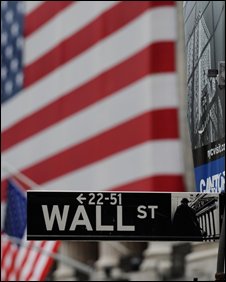Silverbird
Market Veteran
- Reaction score
- 27
It's the bungee bounce, I tell you.
The Forum works well on MOBILE devices without an app: Just go to: https://forum.tsptalk.com
Please read our AutoTracker policy on the
IFT deadline and remaining active. Thanks!
$ - Premium Service Content (Info) | AutoTracker Monthly Winners | Is Gmail et al, Blocking Our emails?
Find us on: Facebook & X | Posting Copyrighted Material
Join the TSP Talk AutoTracker: How to Get Started | Login | Main AutoTracker Page







Because so many greedy bankers sold them creepy loans under false pretenses without checking their credit or making sure they could afford them. :toung:My question is why are so many creepy homeowners wanting to default on their home loans - what ever happened to taking responsibility for ones' actions. I hope these fools all end up living in tents rather than subsidized government housing.
Dunno, Birch, Luv, most of the guys who wrote those loans sold them off as tranches and already got their money. Responsibility was not to be found on either side of this transaction, and only the loan writers got the money. The banks happen to be the ones holding the bag, though they are equally foolish for buying this junk.My question is why are so many creepy homeowners wanting to default on their home loans - what ever happened to taking responsibility for ones' actions. I hope these fools all end up living in tents rather than subsidized government housing.
My question is why are so many creepy homeowners wanting to default on their home loans - what ever happened to taking responsibility for ones' actions. I hope these fools all end up living in tents rather than subsidized government housing.
My question is why are so many creepy homeowners wanting to default on their home loans - what ever happened to taking responsibility for ones' actions. I hope these fools all end up living in tents rather than subsidized government housing.
...Credit squeeze getting worse, banks say
Most banks less willing to lend to businesses, consumers
By Rex Nutting, MarketWatch
Last update: 3:34 p.m. EDT Aug. 11, 2008
WASHINGTON (MarketWatch) -- The credit squeeze worsened in the past three months, the Federal Reserve reported Monday, and most banks expect to keep a lid on credit for the next year at least.
Despite all the aggressive moves by the Fed in the past year to ease the flow of credit to the economy, a record percentage of banks were making it more difficult for borrowers in the three months ending in July, the Fed said in its quarterly senior loan officer survey of 52 major banks.
A majority of banks tightened their rules for granting loans to businesses and consumers. The survey shows little appetite at banks to lend for home mortgages, credit cards, home equity loans, commercial real estate loans, or commercial and industrial loans.
No bank in the survey eased credit terms for any type of loan in the past three months, and only one bank said it anticipated easing standards for consumers in the next 12 months.
Tighter credit could slow economic growth, especially consumer spending, economists say. Lack of credit could sink the commercial real estate market, and curb capital investments by businesses. The survey is considered a leading indicator of credit creation in the United States.
"This is consistent with our view that consumer spending will slow markedly over the next several quarters," wrote economists for Lehman Bros.
"The impending tightening may ultimately curb consumer credit noticeably," wrote Harm Bandholz, an economist for UniCredit Markets. "This in turn would be another nail in the coffin of the U.S. consumer, who is already suffering from the weak labor market, high inflation and falling house prices."
Despite the tighter credit standards, however, other data from the Fed show consumers increased their borrowing on credit cards and auto loans through the end of the second quarter, perhaps because other sources of borrowing, such as home-equity loans and auto leases, are less available.
Banks told the Fed they were restricting credit because of worries about the economy, worries about risk or illiquid markets, and worries about their own fragile capital position.
Ninety-eight percent of the banks cited the uncertain economy, 92% cited illiquid secondary credit markets, and 75% cited reduced appetite for risk.
Banks were lowering credit lines, increasing interest-rate spreads, requiring more documentation, demanding more collateral, or requiring co-signers and or covenants before granting credit.
Consumers continued to be hit hard by tighter credit standards. A record 74% of banks said they had tightened standards for prime mortgages, usually given only to those with the best credit. A record 84% of banks said they tightened standards on nontraditional mortgages (also known as Alt-A), and a record 86% of banks that still make subprime mortgages said they had tightened those standards.
Businesses were also being squeezed. A record 65% of banks tightened standards for commercial and industrial loans to small customers. For commercial real estate loans, a record 81% tightened standards.
Details
C&I loans: Fifty-eight percent of banks tightened standards for commercial and industrial loans to large and medium firms, while 65% tightened for small firms.
Commercial real estate: Eighty-one percent tightened standards, while 50% said demand was weakening.
Residential mortgages: A record 74% of banks said they tightened standards for prime mortgages, while 53% said they saw reduced demand. For subprime mortgages, 86% tightened standards, with the number of banks who offer such loans declining to 14% of banks from about 30% two years ago. For nontraditional mortgages, 84% tightened standards while 63% reported reduced demand.
Consumer credit: A record 36% of banks reported less willingness to extend consumer installment loans; only 2% were more willing.
Eighty percent tightened standards on home-equity lines of credit.
For credit cards, 67% tightened standards, mostly by refusing new loans to consumers without good credit.
